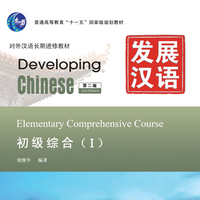21-3
21-3
21-3
21-3
21-3
21-3
21-3
林娜 : 日本 人 都 很 习惯 AA制 吗 ?
Linna: Sind die Japaner an AA gewöhnt?
Lin Na: Are Japanese people used to AA?
山田 : 当然 习惯 了 。
YAMADA: Natürlich bin ich daran gewöhnt.
Yamada: Of course I am used to it.
林娜 : 我 觉得 大多数 中国 人不太 习惯 AA制 , 他们 常 一个 人 请客 。
LINNA: Ich glaube, die meisten Chinesen sind nicht an AA gewöhnt, sie behandeln sich oft selbst.
Lin Na: I think most Chinese people are not used to the AA system. They often treat people alone.
Lin Na: Creo que la mayoría de los chinos no están acostumbrados al sistema de AA A menudo tratan a los invitados solos.
山田 : 他们 经常 这次 你 请客 , 不次 他 请客 , 这样 也 不错 , 和 AA制 一样 。
YAMADA: Sie behandeln einen oft dieses Mal, aber nicht das andere Mal, also ist es nicht schlecht, genau wie bei den AA.
Yamada: They often treat you this time. It is not bad for him to treat guests. This is not bad, just like the AA system.
山田:今回はよくおもてなししますが、二度とおもてなししませんし、AA系と同じように悪くないです。
林娜 : 我们 也 要 慢慢 习惯 中国 人 的 做法 。
LINNA: Wir müssen uns auch an die chinesische Art, Dinge zu tun, gewöhnen.
Lin Na: We have to get used to the Chinese people.
山田 : 我 看见 你 打包 了 , 你 把 东西 放在 哪儿 了 ?
Yamada: Ich habe dich packen sehen. Wo hast du es hingetan?
Yamada: I saw you packing it. Where did you put things?
山田:荷物を詰めているのを見ましたが、どこに置いたのですか?
林娜 : 我 把 袋子 放在 旁边 的 桌子 上 了 , 我 去 拿 。
LINNA: Ich habe die Tasche auf dem Tisch neben mir vergessen, ich werde sie holen gehen.
Lin Na: I put the bag on the table next to it, I will take it.
Lin Na: Pongo la bolsa en la mesa a mi lado, iré a buscarla.
